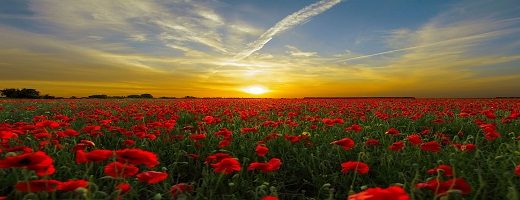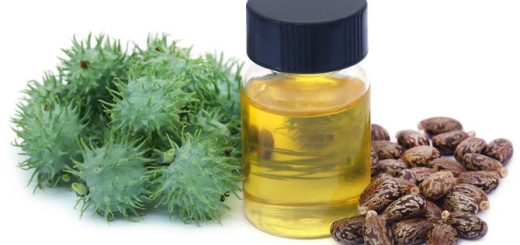How to Get Rid of Chest Acne: Acne Treatment Forum
It is painful enough to endure the pressure of acne on the face to find it resurface on your chest! Chest acne is a common problem among people of all age group. The lesions on your chest make it painful to keep your clothes on, making it itchy in the process! Imagine yourself in the office, desperately itching your way through, while in a meeting with your boss! Yes, chest acne now definitely sounds like a menace!
However as long as you have a 101E Acne Getaway with you, chest acne can never be a menace. This natural treatment lotion will act like your shield, improving your skin preventing it from resurging, and that too magically within a short period of time.
The basic factors that contribute in the development of acne are the growing vulnerability of the skin towards germs and bacteria, and due to a rapid increase in the production of oil from the oil glands. This makes the skin greasy and susceptible to acne problems.
Acne can not be cured completely but good news is that you can prevent and control the acne condition by proper and regular treatment. There are two approaches to treat chest acne; one is to treat already present chest acnes and second approach is to prevent the formation of chest acne.
Signs and Symptoms of Acne:
Acne is the common term used for a skin disorder that frequently appears as small elevated pimples on the face, back, chest, and shoulders. About 80% of teens are affected by acne to some degree, and it sometimes even occurs in adults up to the age of 40 if not treated properly. The image on the right shows an individual suffering from a moderate amount of acne on the face.
Two Major Types of Acne:
- Non-inflammatory Acne: This type of acne typically appears as whiteheads or blackheads, and they can be treated with non-prescription acne medications and acne home remedies.
- Inflammatory Acne: Non-inflammatory acne, if not treated properly with effective acne medication, can lead to inflammation, which may cause more serious skin eruptions and pimples such as pa-pules, pustules, nodules, and cysts.
Causes of Acne:
Acne is a skin disorder caused by plugged pores of the skin. Human skin has a middle layer called the dermis which is made up of hair follicles and sebaceous glands. These glands produce an oily substance called sebum that is used to naturally moisturize and lubricate the skin. The face, back, chest, and shoulders contain a large concentration of these glands.
Throughout life, and particularly during puberty, humans produce hormones such as androgen and progesterone that lead to an overproduction of sebum. As a result, this excess sebum plugs the follicle canals and skin pores, leading to blackheads and whiteheads.
Blackheads form when sebum combines with skin pigments and plugs the pores. Whiteheads are slightly elevated from the skin but, unlike blackheads, are not very visible because their opening to the skin’s surface is narrower or sometimes closed.
If these two forms of acne are not treated immediately, an infection may occur. If this happens, the body’s immune system sends white blood cells to the area to fight the infection, which causes inflammation. If the infection is still not treated, the inflammation can become worse and lead to the more serious forms of acne.
How to Prevent Chest Acne?
Part of the prevention of chest acne comes down to a good cleansing regime. It is a matter of hygiene. It helps to stop the formation of cystic acne on the chest. Here are the following six preventive tips on home remedy for chest acne and some them may have nothing to do with hygiene.
A change of eating habits such as incorporating more fruits and vegetables and eliminating the greasy foods will go a long way in prevention. They contain essential vitamins and minerals which also help to improve skin tone, which in turn help to clear chest acne. Leafy greens are the best, and fruits contain antioxidants that help to fight the effects of aging as well. These changes aren’t that bad, are they?
Use of Antibacterial Gel and Soap:
People with chest acne are advised to wash the affected area with antibacterial soap or gel. Frequency of washing should be advised by your doctor after examining your condition as more than required washing can also make the situation worse. After washing and drying properly the infected area, apply an antibacterial cream.
Apart from antibacterial soaps and gels, you can apply creams and gels, specially designed to treat chest acne; most of them contain benzene peroxide. In case your chest is severely affected by the acne in large area and you do not feel comfortable with topical cream, your dermatologist can prescribe oral antibiotic medication. You may have to take a few weeks course of antibiotics to treat it. If you do not complete the treatment, chest acne can relapse. In case of even more severe chest acne, your doctor may recommend steroid therapy or laser therapy.
Tight Clothing and Chest Acne:
If you have chest acne, do not wear tight and synthetic clothing as it will make you perspire more and aggravate the acne. Rather wear light and loose fitting clothe made up of breathable cotton fabric.
Natural Treatment for Chest Acne:
- You can make use of many natural remedies to treat chest acne. Besides being effective and soothing, these remedies do not have any side effects on the skin and body.
- Make a lotion by mixing rose water and lemon juice in equal quantities and apply it over the acne. Repeat this process for about three weeks to get positive results.
- Take 1 tbsp of dry or fresh yeast and mix it with 2 tbsp of lemon juice. Apply this paste over the chest acne and wash it with warm water after it is dry.
- Boil two teabags and some basil leaves in one cup water and cool it. Apply this extract with cotton balls on the acne.
- Eat carrots and cucumbers or drink their juices. It may help control acne.
- Treat scars of chest acne by preparing a mixture of 1 tbsp sour cream, 1 tbsp yogurt, 1 tbsp of ground oatmeal and few drops of lemon juice. Apply this mixture over chest and wash it with lukewarm water after 10-15 minutes.
Home Remedies for Treating Chest Acne:
- Wash and bathe after an extensive exercise regime.
- Use about two percent of salicylic acid on the affected area.
- Wear loose fitting clothes like cotton or linen, etc.
- Apply a noncomedogenic lotion on the chest area to remove acne.
- Application of benzene peroxide on the chest area also proves effective for treating chest acne.
Chest acne can be prevented if you maintain a healthy lifestyle and that which is conducive to a clean and hygienic surrounding.


